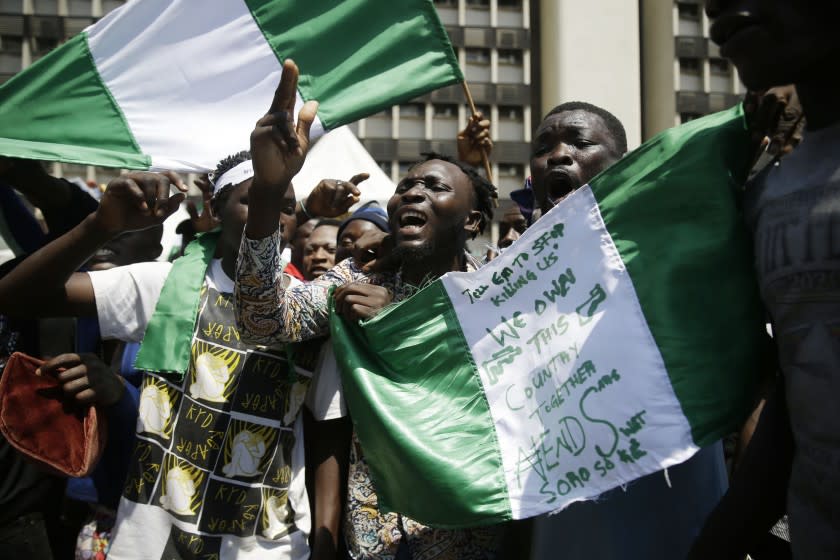Nigerian activists created #EndSARS in 2017. Now, it's resurfaced and sparked a social media movement

Nigerian activists created the Twitter campaign called #EndSARS years ago to pressure government and police officials to disband the controversial police unit known as the Special Anti-Robbery Squad.
That was in 2017. This month, the online campaign resurfaced after a video circulated showing a man being beaten, apparently by police officers of the squad, widely known as SARS.
For the last two weeks, Nigerians have marched across the African nation, protesting against police violence that has left at least 56 people dead during demonstrations. Activists have also used the social media hashtag to spread their message worldwide and people have responded as others pushed for police reform in their communities. Celebrities such as Beyoncé and Rihanna have written messages of solidarity on their social media this week.
In countries around the world, including the United States, there have been condemnations and demonstrations in support of Nigerians protesting against SARS.
SARS, the federal police unit of the Nigeria Police Force, was created in 1992 to deal with violent crimes and armed robberies. It came under fire from civilians and Amnesty International for its inhumane tactics. A 2016 report by Amnesty International describes how SARS used torture such as beating, hanging, starvation and threats of execution to get information.
In light of this month's demonstrations, Mohammed Adamu, the head of the Nigeria Police Force, announced on its Facebook account on Oct. 11 that it would immediately dissolve SARS across the 36 state commands and federal capital territory in the "spirit of democratic, citizen-centered and community policing."
Adamu said a forum was being created where police officials and citizens could regularly interact and discuss policing activities. The police force, he said, would also cooperate with "human rights bodies" investigating alleged cases of human rights violations.
Two days later, he announced that a new unit, called Special Weapons and Tactics, would replace SARS. Members of this new team, SWAT, would not include those from SARS.
To be eligible for SWAT, Adamu said, candidates must be free of any pending disciplinary action, especially the misuse of firearms and human rights abuses. They will also undergo psychological and medical examination and fitness training. SWAT, he said, will also be prohibited from going on routine patrols and "indiscriminate and unlawful search of phones, laptops and other smart devices."
Members of the defunct SARS will also undergo psychological and medical examination and go through more training before they return to policing duties, according to Adamu.
The inspector general of police "stresses that the Force leadership has heard the voice of the people clearly and is irrevocably committed to doing everything possible to address the observed ills, punish the offending officers and enthrone a people-friendly police force," according to a statement released by the Nigerian Police Force's public relations department.
Nigerian activists have created a new hashtag — #EndSWAT — to push back and keep the pressure on for police reform. It, too, is attracting social media notice globally.
This story originally appeared in Los Angeles Times.

